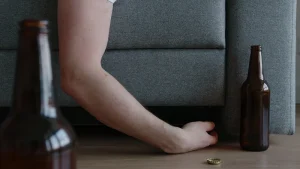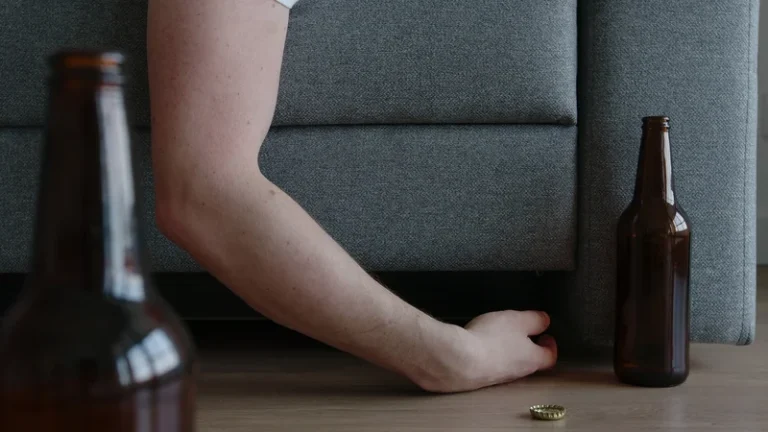
This may include, for example, a best friend, adult relatives or a member of your loved one’s faith community. Your intervention professional can help you figure out who should be on your team. A successful intervention must be planned carefully to work as planned. A poorly planned intervention can make the situation worse.

Public Health

Alcoholism and alcohol abuse affects millions of people, from every social class, race, background, and culture. While you can’t do the hard work of overcoming addiction for your loved one, your patience, love, and support can play a crucial part in their long-term recovery. With these guidelines, you can help ease your loved one’s suffering, preserve your own mental health and well-being, and restore calm and stability to your relationship and family life. Overcoming an addiction to alcohol can be a long and bumpy road. If you’re ready to stop drinking and willing to get the support you need, you can recover from alcoholism and alcohol abuse—no https://ecosoberhouse.com/ matter how heavy your drinking or how powerless you feel. And you don’t have to wait until you hit rock bottom; you can make a change at any time.
- Some people may think the only way to deal with it is with willpower, as if it’s a problem they have to work through all on their own.
- Continuing care groups are usually the last step in the process.
- Medications have become more sophisticated in treating both the physical and psychiatric needs of someone recovering from an alcohol use disorder.
- Trying to tough it out on your own can be like trying to cure appendicitis with cheerful thoughts.
Alcoholism and Alcohol Abuse
Regardless of how the addiction looks, someone typically has an alcohol addiction if they heavily rely on drinking and can’t stay sober for an extended period of time. The severity of the disease, how often someone drinks, and the alcohol they consume varies from person to person. Some people drink heavily all day, while others binge drink and then stay sober for a while.

Alcohol support
Ask about new strategies that they learned in treatment or meetings. Several evidence-based treatment approaches are available for AUD. One size does not fit all and a treatment approach that may work for one person may not work for another.

You may get to the point where you feel compelled to help your person get well. However, family members and friends often have deep emotional ties that prevent them from having the objective viewpoint necessary for treatment. Don’t consider your part done after your friend or family member is in therapy. Offer to help out with work, childcare, and household tasks if they get in the way of treatment sessions. As a loved one of someone with an alcohol addiction, try to be encouraging and provide emotional support. Ultimately, sobriety is the responsibility of the person who has the alcohol addiction.
Meanwhile, alcohol sales in the United States increased by 34 percent at that time, according to a researcher at the Washington University School of Medicine. Local authorities are responsible for alcohol struggling with alcohol addiction treatment services. Intensive residential rehabilitation may require an additional assessment process to determine if there is funding for this. But some people will need a short stay in a medically supported unit so they can receive safe treatment of their withdrawal symptoms or other problems. Cutting down or stopping drinking is usually just the beginning, and most people will need some degree of help or a long-term plan to stay in control or completely alcohol free.
Health Effects of Alcohol
It’s critical to set boundaries if the loved one refuses to seek help. Communicate any changes in your relationship or ways you will protect yourself moving forward. If they agree to seek treatment, follow up regularly and offer support throughout their recovery journey. Being present and maintaining open communication can reinforce their commitment to change.
As with any other chronic illness, the more informed you are the better you will be able to support them. You can help them, and yourself, by seeking more education. Drugs and alcohol can rewire the brain, disrupting function and leading to dependency. It drug addiction treatment results in a distorted value system that shifts toward supporting ongoing substance use. Sober living homes, vocational training and family counseling can aid a person’s transition back to society after treatment.
- The Healthline FindCare tool can provide options in your area if you need help finding a mental health specialist.
- But friends and family may feel unsure about how best to provide the support needed.
- “It’s a beautiful plant with very nice properties when used correctly. I don’t think that I was using it correctly. I think I was overusing it. I wasn’t the most productive pothead.”
- Spending time with people who understand exactly what you’re going through can be very healing.
- Teen Challenge rehabs are located throughout the Southeast, New Mexico, and Kentucky.
After the individual receives personalized feedback, the counselor will work with them to set goals and provide ideas for helping to make a change. Couples and family counseling incorporates spouses and other family members in the treatment process and can play an important role in repairing and improving family relationships. Studies show that strong family support through family therapy increases the chances of maintaining abstinence (not drinking) compared with people going to individual counseling. The Harry Potter star revealed in GQ UK’s July 2011 issue that he hadn’t had a drink since August 2010.
- Alcohol addiction manifests as a compulsive need to drink despite harmful consequences.
- This reason stems from personal goals, such as ameliorating health, rebuilding relationships, or achieving professional success.
- You may need to join forces with others and take action through a formal intervention.
It’s important to not enable destructive behaviors and to maintain appropriate boundaries if the person with the alcohol addiction is still drinking. This can mean cutting off financial assistance or making it difficult for them to fulfill the addiction. Many people addicted to alcohol also turn to 12-step programs like Alcoholics Anonymous (AA). There are also other support groups that don’t follow the 12-step model, such as SMART Recovery and Sober Recovery. In order for treatment to work, the person with an alcohol addiction must want to get sober. You can’t force them to stop drinking if they aren’t ready.

Leave A Comment